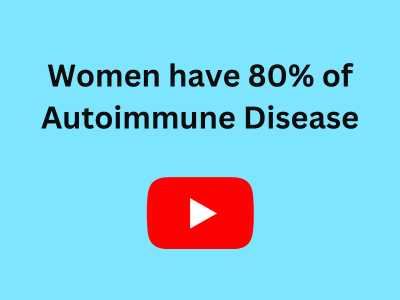In preparing to write this story, I listened to Jacqueline du Pré playing Elgar’s cello concerto to find the words to describe how that experience feels.
I burst into tears during the first bar.
Some of that had to do with the music taking me to a time when my father was alive, but it was also because the music was so damned haunting.
If you believe trauma expert Dr. Gabor Maté, the same talent that brought Jacqueline’s audiences to tears turned out to be the death of her:
Jackie, hailed as one of the greatest cellists of all time, never wanted to become a child virtuoso, the way Maté tells it. She had a sense that it would kill her. But she couldn’t say no to that fate because so many people would have been disappointed.
According to her sister, Jackie was always the person that circumstances demanded. She learned to express her emotions through her cello and suppress them in life. But, …
Suppressing emotions…
Not saying no…
Taking responsibility for everyone else…
Not expressing our own needs…
lead to illness, burnout and, potentially, women having 80% of autoimmune disease.
(Link to video about this below.)
For Jackie, suppressing her emotions turned into physical symptoms. At 26, she started showing signs of multiple sclerosis. By 27, she could no longer play the cello. She died at 42.
Where in life do you want to say no?
There was a time that I couldn’t—wouldn’t—say no to research biology.
Not knowing what else to do, I suppressed my emotions and got on with it. And when I finally left the laboratory after more than a decade, I took a series of science jobs to reconcile my sunk costs, all the while ignoring my heart’s desire for more creative work…
And enduring food sensitivities and more that I knew were directly tied to that behavior.
In time, my diet was reduced to little more than parsley, lettuce and lemon juice, which I put up with for months until eating a carrot and Swiss chard landed me in an emergency room.
Finally, I said no to my career before my body did it for me like Jackie’s did for her.
What’s something that you can say no to today?
There have been occasions in my caregiving journey when I wanted to say no even as my mouth said yes. Had I honored my desire for peace and quiet, for example, I wouldn’t have let visitors come see my mom at times. But I wouldn’t deny her the joy of that.
Other scenarios weren’t / aren’t so clear cut, so there was / is space for me to decline.
My mother does as well as I can care for her. It’s a kindness, then, for me as a caregiver—and you, if it applies—to take care of myself by saying “no” judiciously.
Next time, I’ll share a story about how my saying no when caring for my dad produced wonderful outcomes all around.
So, we’re entering a big no time for me: the end-of-year holidays. Though I prefer to be affirmative about it and say that it’s a yes time for rest, reflection and taking a break from blogging and engaging so much on social media.
In other words, “see” you with the next story in January.
Happy Holidays a bit early, and thank you so much for reading. I truly appreciate it.
Here’s the link to the video I promised:



Published by